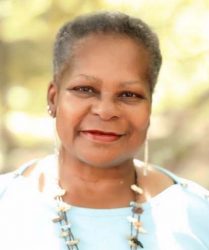In the last couple of weeks, in the wake of the spate of sexual harassment claims against powerful men, I have heard several references to “sexual harassment training.” It’s an expression that makes no sense to me. These alleged perpetrators already know how to sexually harass women and, in at least one case, a boy. I think reporters should be saying “anti-sexual harassment training” or “sexual harassment prevention training.” Recently, I even heard an NPR reporter explain that someone in Congress was considering offering “harassment training.” I certainly hope that fails!
* * *
I input #MeToo in my Google browser to see what I could learn about the phenomenon of women admitting to having been sexually assaulted or abused while outing their assailants/abusers/rapists. Lianna Brinded, writing on Quartz, says #MeToo has caused a paradigm shift in the way we all look at and respond to sexual harassment and abuse. She is apparently correct. It seems that women are mad as hell, and we’re not going to take it anymore.
One thing some women are saying is that their confidence was diminished by harassment, something I just did not get. A friend who used to work for a Fortune 500 company helped me understand how women’s confidence could be undermined. She explained that in her unit, no one ever got an above average performance review – even when they exceeded their goals.
That happened to me once, but I refused to sign my review, and I went above my boss’s head with evidence and complained – in writing – to the Personnel department. Now I see that although I was bold, I was also lucky. Lucky that policy required that employees had to sign their performance reviews, lucky the Personnel director was a woman, and lucky that my boss backed down. From what I am learning, things could have gone very differently.
* * *
Now, I want to introduce you to a remarkably brave and insightful young woman who survived a horrendous attack 15 years ago. She was kidnapped from her home in Killeen TX, raped, shot three times in the back, and left for dead in an open field. Her name is Bridget Kelly,
When Kelly’s story was reported in the news, she was surprised that her name was not disclosed. She had done nothing to be ashamed of. Why was it worse, she wanted to know, to be raped than to be shot? The names of gunshot victims are not suppressed to “protect” them. She told her father, a columnist for an Omaha NE newspaper that it was okay to reveal that she had been raped. And once his newspaper, the Omaha World-Herald, made an exception to its policy of not revealing rape survivors’ names, he did just that. So, Bridget, then 24, still in the hospital recovering from rape and bullet wounds, thought of something so right and so logical that I wondered why it had not occurred to me long before.
Another observation Bridget Kelly made after her rape was revealed is that being raped is like belonging to a secret club to that no one wants to join. Once people knew that Bridget had been raped, some of the women in her life revealed that they, too, had been raped. You probably know someone who has been raped, because as many or more rapes go unreported than are reported to law enforcement. That unfortunate truth is on the rape survivors who must be brave and report sexual assault.
I’ll talk more about Bridget Kelly in future posts . . .

